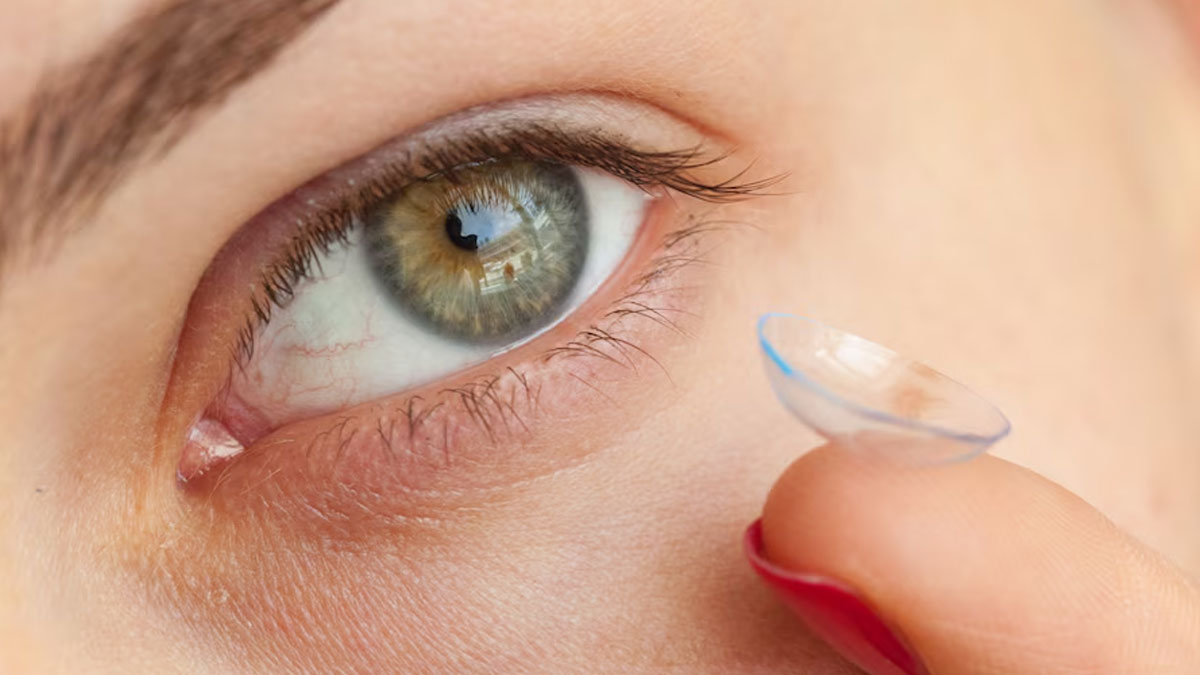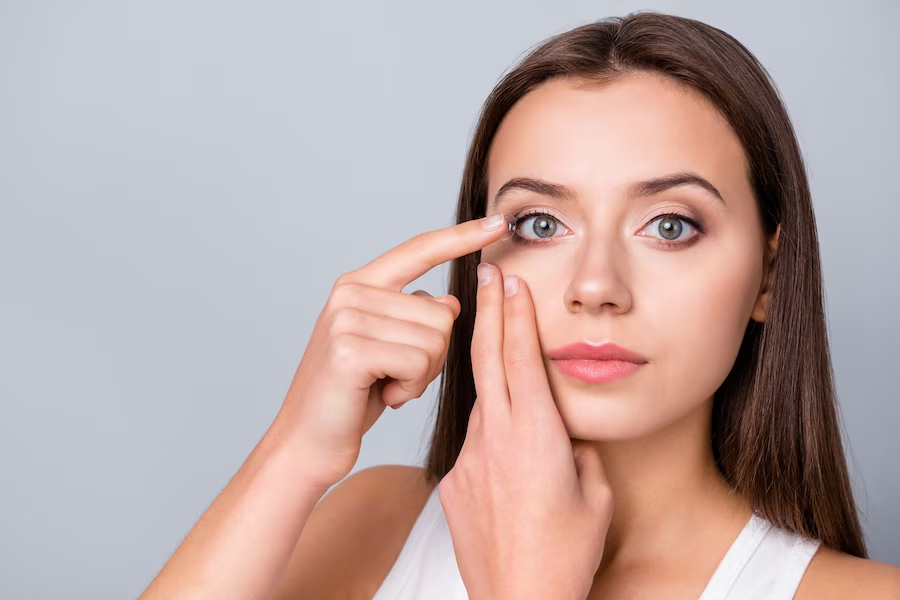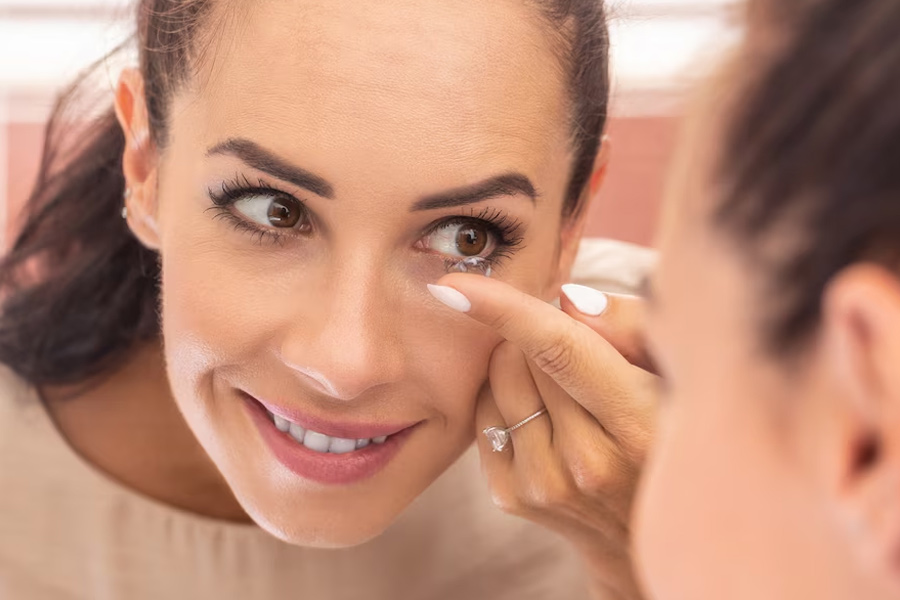
Dry eye, as the name itself suggests, is a condition where the eyes don't produce enough tears or the tears are of poor quality, leading to dryness, irritation, and discomfort.
Several factors can lead to the condition, and depending on the underlying cause, one can seek support from an ophthalmologist. While doctors may recommend prescription eye drops, warm compresses, and eyelid massages, some people who may be advised to wear glasses can also opt for contact lenses. But how can one choose the right type of contacts for themselves? Here’s what an expert has to say...
Table of Content:-
Also Read: What Happens When You Wear Contact Lenses For A Long Time?
Possible Causes Of Dry Eyes

Dr Madhusmita Behera, Senior Consultant, Department of Cataract, Orbit and Oculoplastic Surgery, Rotary Techno Nethralaya, says, "Dry eyes are a common condition that occurs when the tears in the eyes are unable to provide adequate lubrication for your eyes.”
Our eyes are programmed to produce tears to maintain moisture in the area. However, this process can be hindered by various factors, including:
- Exposure to environmental irritants such as wind, low humidity, air-conditioning, sun, smoke, chemical fumes, or heat
- Damage to the tear glands or any part of the eye
- Certain diseases, such as Sjogren’s syndrome and other autoimmune conditions
- Allergies
- Eye surgery, such as refractive surgery (LASIK) and cataract surgery
- Taking certain medications
- Long-term contact lens wear
- Age and gender factors, specifically female gender
Can People With Dry Eyes Wear Contact Lenses?

Many people wonder whether it is safe to wear contact lenses with dry eyes. Dr Behera shares that it is completely safe, given that you adhere to proper guidelines. These include:
- Type of contact lens to choose
- Using a high-quality contact solution that is compatible with your lenses
- Properly cleaning and storing your contact lenses
- Making certain lifestyle adjustments, like staying hydrated, taking breaks from screen time, using a humidifier in dry environments, and avoiding smoke and other irritants.
Also Read: Evaporative Dry Eye: Expert Explains Its Causes, Symptoms, And Treatment
How To Choose A Good Contact Lens For Dry Eyes
Selecting the appropriate contact lens for dry eyes is crucial for comfort and eye health, says Dr Behera, sharing some key features to look for:
- Lens material: Use a lens like Silicon Hydrogel or one that has a high water content.
- Lens design: using a scleral or gas-permeable lens
- Using a daily disposable lens reduces the risk of irritation and contamination.
Dr Behera emphasises that the material of contact lenses is crucial for managing dry eyes. This is because lenses made from silicone hydrogel allow more oxygen to reach the eye and retain moisture better, significantly improving comfort for those with dry eye conditions, he explains.
Eye-Care Tips To Follow

Here are some other tips to maintain lens quality for good eye health:
- Dispose of contact lenses as recommended by your eye doctor.
- Change your contact lens case every few weeks to prevent germ buildup.
- Do not wear contact lenses when you have a cold, flu, or eye infection.
- Ensure your contact lenses are properly fitted by an eye doctor.
- Regularly get your eyes examined to monitor your health and update your prescriptions.
- Avoid wearing contact lenses for extended periods if you are experiencing dry eye or discomfort.
Conclusion
People with dry eyes need to consult their doctors to discuss the effective treatments available for the condition. If you’re someone who has already been prescribed eyeglasses and wants to switch to contact lenses, it is again a good idea to speak with your ophthalmologist. Choosing the right contact lenses plays a crucial role in maintaining eye health, and doing so without an eye examination and without talking to a specialist can backfire. Remember, always seek help before making decisions on your own.
Also watch this video
How we keep this article up to date:
We work with experts and keep a close eye on the latest in health and wellness. Whenever there is a new research or helpful information, we update our articles with accurate and useful advice.
Current Version